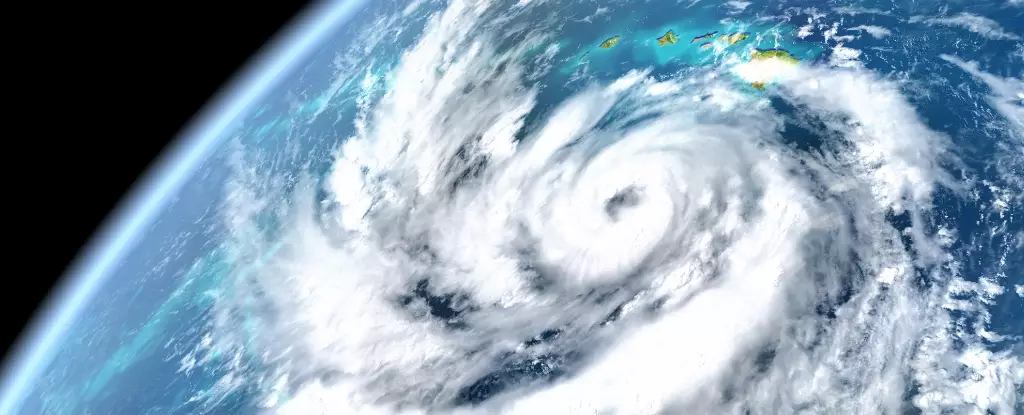In an audacious leap forward, Microsoft has unveiled Aurora, a revolutionary artificial intelligence model that not only enhances forecasting capabilities for air quality and weather phenomena but fundamentally redefines our approach to climate-related disasters. This new technology, which has yet to be commercialized, reportedly achieves unprecedented accuracy in predicting hurricane trajectories and generating detailed 10-day weather forecasts, outperforming traditional models that have dictated meteorological practices for decades. While the potential of such a system is vast and exciting, it also raises numerous concerns regarding reliability, governance, and the ethics of deploying AI in such critical areas.
Challenging Established Norms
For too long, meteorological forecasting has been reliant on models grounded in established physical principles, like the conservation of mass and momentum. These models, while scientifically rigorous, demand exorbitant computational resources and can lag behind the real-time needs during extreme weather events. Aurora, however, demonstrates that it is possible to achieve accurate forecasts at a fraction of the computational cost—according to various reports, Aurora’s computing costs are several hundred times lower than conventional forecasting systems.
The achievement by Microsoft reflects not only technological prowess but also highlights a significant shift in the underlying paradigm of meteorological prediction. Senior researcher Paris Perdikaris articulates this shift, declaring that we may be witnessing the dawn of a transformative age in air system science. However, this remarkable progress must be tempered with caution; rapid advancements in AI can often outpace our ethical frameworks and regulatory measures, which remain inadequately prepared for such revolutionary changes.
Success Against a Background of Competition
Aurora’s impressive performance stands in stark contrast to that of its competitors, such as Huawei’s Pangu-Weather AI model and Google’s GenCast. The fact that Aurora can consistently outperform established forecasting centers, including the esteemed European Centre for Medium-Range Weather Forecasts (ECMWF), raises questions about the future role of these institutions. Are they prepared to adapt, or will they become relics of a bygone era, eclipsed by the prowess of advanced AI systems?
The stakes are particularly high when we look at the alarming increase in climate-related disasters. In its test cases, Aurora accurately forecasted catastrophic events like the typhoon Doksuri, which wreaked havoc in the Philippines. This is not just a question of academic interest; real lives depend on the accuracy of weather forecasts during extreme weather events. The successful demonstration of how AI can surpass human-built models casts a long shadow of doubt over the effectiveness of traditional forecasting methods and proposes a shift not only in technology but in the very philosophy of weather prediction.
Ethical Implications and the Road Ahead
Yet with great power comes great responsibility. How do we ensure that such potent tools are used wisely? The proliferation of AI in forecasting leads us into uncharted territory where data privacy, algorithmic accountability, and societal equity become pressing considerations. As more weather agencies explore the implementation of AI technologies, a coordinated governing framework is crucial to address these challenges.
Florence Rabier, the Director General of ECMWF, noted the necessity of taking AI advancements seriously, emphasizing the creation of models that are computationally efficient yet still maintain operational integrity. However, while agencies scramble to keep pace with these developments, we must ask if they are doing enough to anticipate the potential consequences. Misguided forecasts—especially in an era marked by increasing unpredictability due to climate change—could lead to disastrous outcomes.
The Future of Meteorology
As the climate crisis deepens and weather volatility becomes the new normal, the demand for superior forecasting tools is undeniable. Aurora represents not just a shift in methodology but a broader commentary on the future direction of science itself. Can we navigate the future of weather forecasting while ensuring ethical and responsible AI practices? Perhaps the urgency to answer this question is as critical as the need to improve our forecasting technologies.
With AI’s potential to reshape how we understand and predict our environment, Aurora may well become a cornerstone in the fight against the unfolding climate disaster. The next five to ten years could witness profound changes in our meteorological landscape, reflecting our collective aspirations and fears in the face of an uncertain climate future. In navigating this path, the stakes have never been higher.

